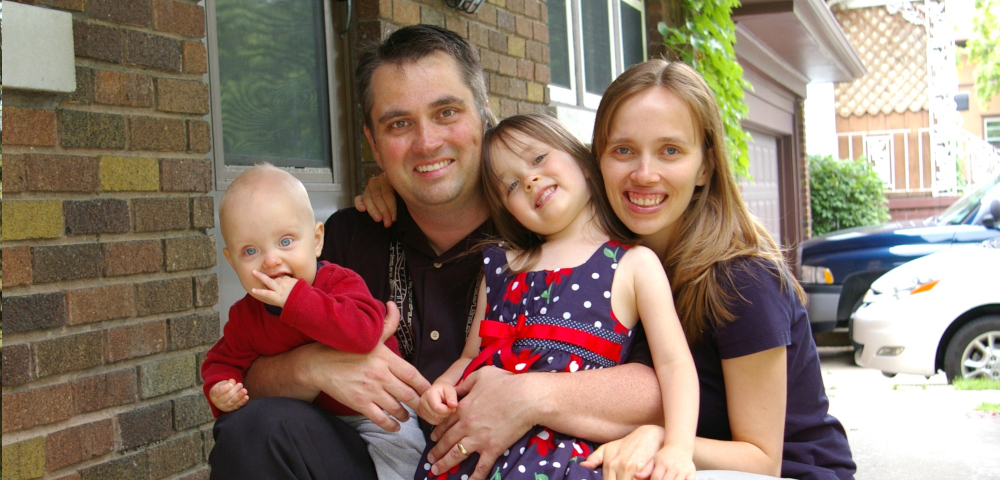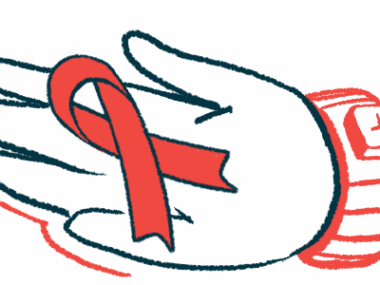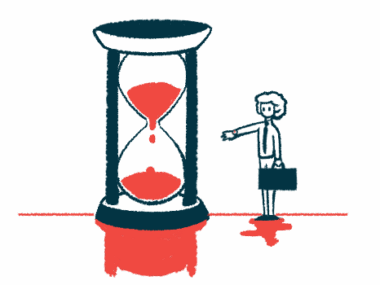How Caregiving for a Spouse With ALS Has Aged Me
An encounter at the drugstore prompts a reflection on aging and the effects of caregiving
Written by |

Last week at Walgreens, the cashier asked me if I got the senior discount. I’ve never been asked that before, but perhaps the stress of caring for my disabled husband has finally caught up to me.
“How old do you need to be to be considered a senior?” I asked.
“55,” she replied.
“I’m 45,” I said, “but I’m actually somewhat delighted by the question because I’ve always been mistaken for being younger than my age.”
After I graduated from college, I coordinated a tutoring program and helped run other programming for middle school students. Sometimes I’d visit the kids at their schools, and to my dismay, other junior high schoolers often asked if I was a new student.
When my husband, Todd, and I were leaving town after our wedding, we stopped to get gas a mile south of Michigan Tech, a mid-sized university in the neighboring small town. I went into the store with him to get some snacks for the drive to our honeymoon location. The clerk asked Todd, “So you’re bringing your daughter up to college?” I was 26, and only seven years younger than Todd, but I suppose I looked more like 18 and he could have passed for 39.
Now Todd certainly looks older than his 51 years, because he is sick with ALS, and apparently I’m starting to look my age, or perhaps even older than my age.
Living with the stress of Todd’s ALS for the past 12 years has aged me. It’s exhausting to always be on call, at the ready to scratch an itch, help him in the bathroom, or clear his lungs when they fill with mucus. It’s a lot of pressure to have someone so dependent on me, and it’s such a fight to get resources and equipment to manage this disease. On top of that, I grieve what he has lost and what we as a family have lost.
When Todd’s nephew visited over Labor Day weekend with his young family, we were struck by the fact that he is only a year younger than Todd was when Todd was diagnosed with ALS. And our kids were even younger than our nephew’s kids. Todd said he didn’t feel that young when he was diagnosed at 39, but now when he looks at his nephew, he realizes just how young he was.
I felt young when Todd was diagnosed. I was 32, and we had a 4-year-old girl and a 9-month-old boy. We were looking forward to fulfilling our dreams over a long life.

The Neva family, the day after Todd’s ALS diagnosis in 2010. (Courtesy of Kristin Neva)
But now, after a decade of caregiving, I feel old.
Perhaps I just relate more to what older people normally go through on a daily basis, such as dealing with caregiving for a spouse, home healthcare, Medicare, and end-of-life issues. In many ways, we have more in common with elderly, homebound couples than we do with 50-year-old parents of our children’s classmates.
Perhaps I should get double credit for every year we’ve lived with ALS. That would put me at age 57, past the cutoff for getting the senior discount at Walgreens. I’ve earned my wrinkles.
Note: ALS News Today is strictly a news and information website about the disease. It does not provide medical advice, diagnosis, or treatment. This content is not intended to be a substitute for professional medical advice, diagnosis, or treatment. Always seek the advice of your physician or other qualified health provider with any questions you may have regarding a medical condition. Never disregard professional medical advice or delay in seeking it because of something you have read on this website. The opinions expressed in this column are not those of ALS News Today or its parent company, Bionews, and are intended to spark discussion about issues pertaining to ALS.







Leave a comment
Fill in the required fields to post. Your email address will not be published.